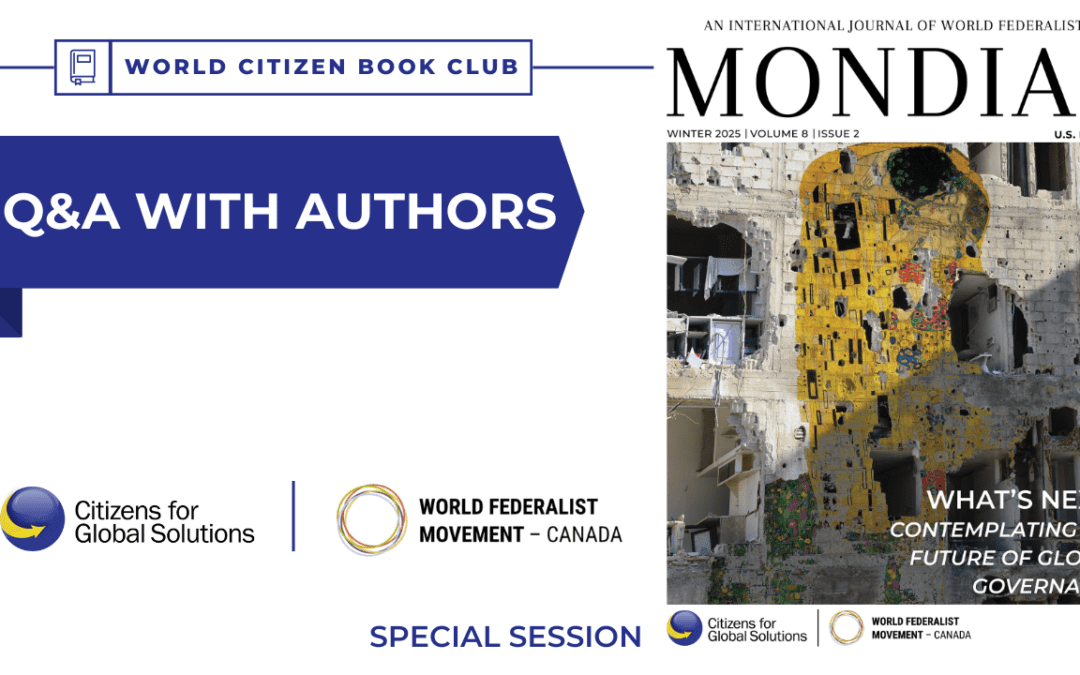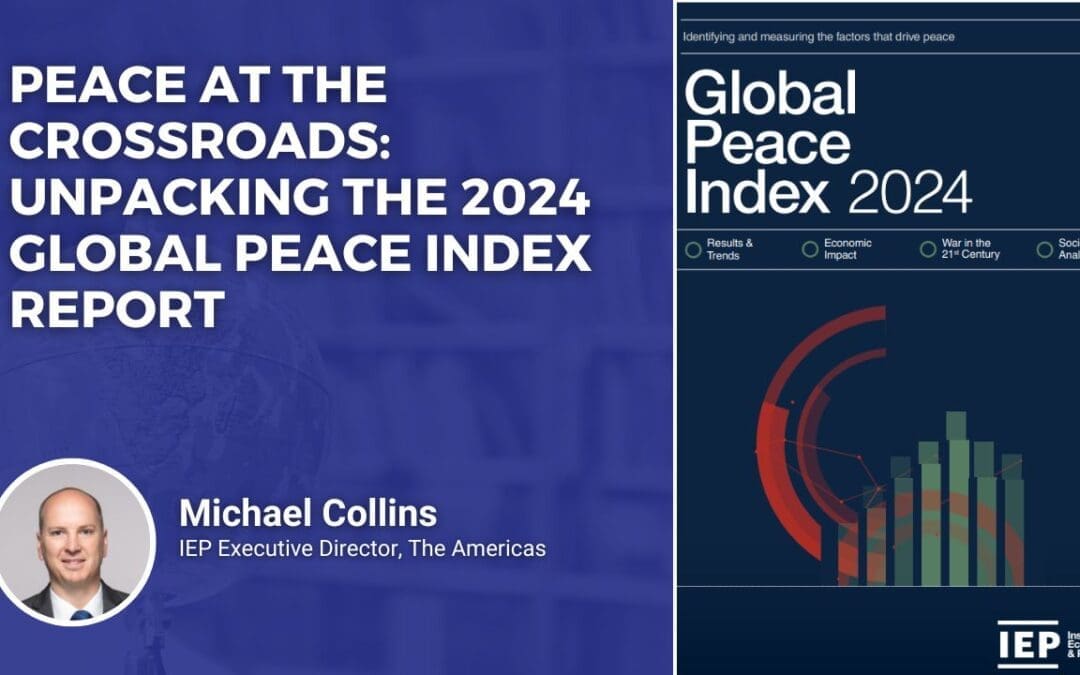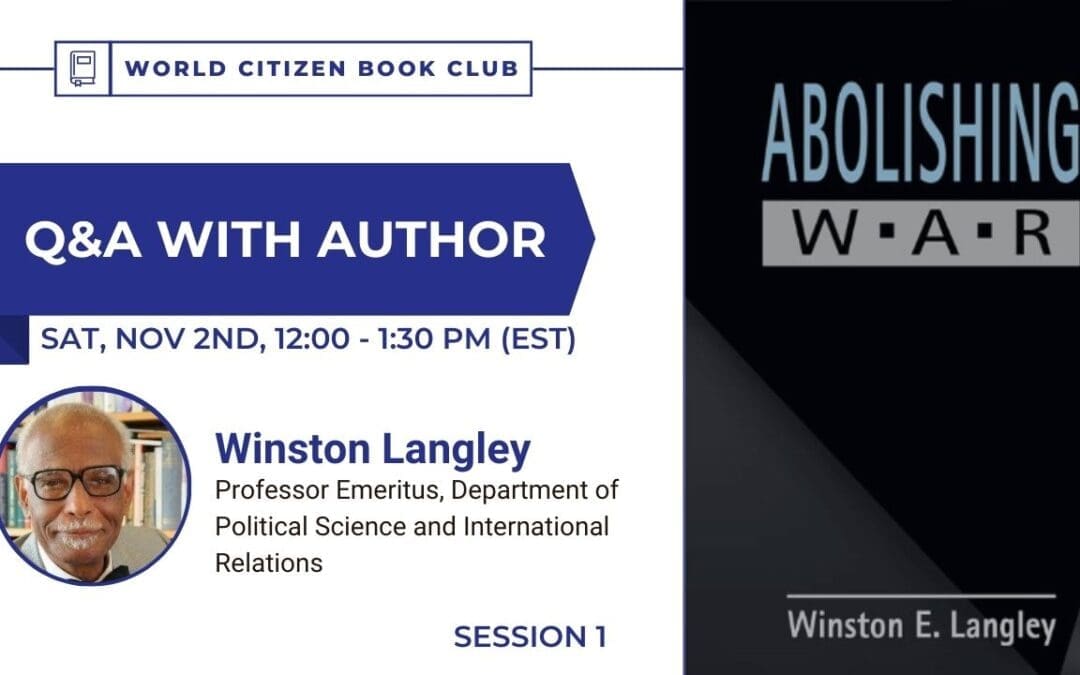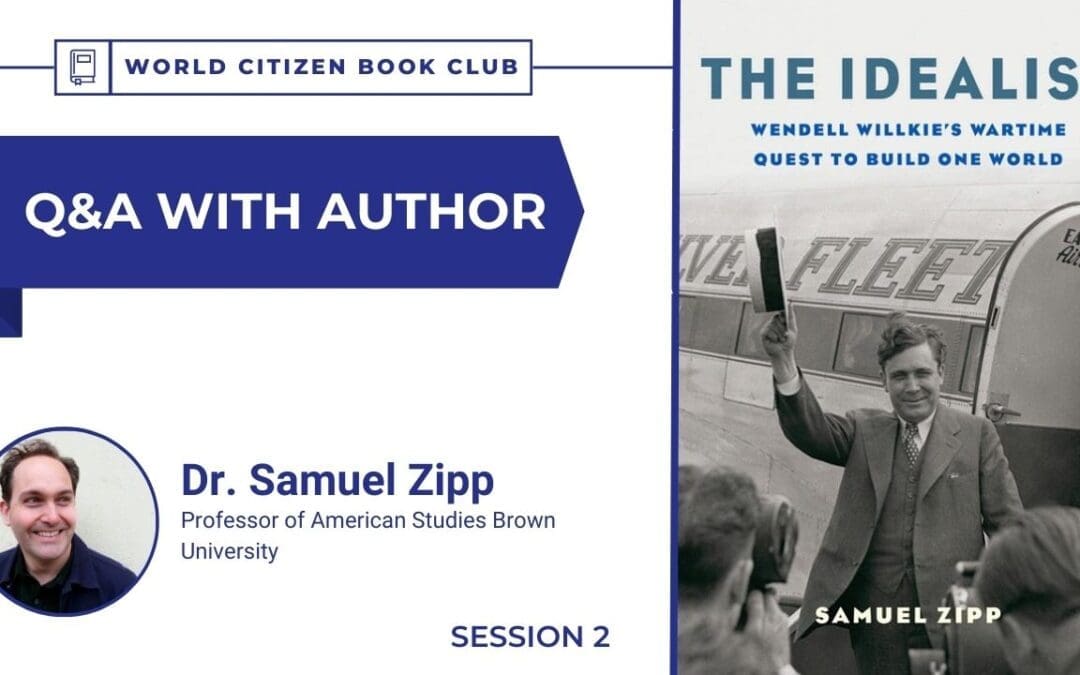
by CGS | Mar 1, 2025 | Past Event
Mondial, published semi-annually, invites thought leaders to provide insights into our most pressing global challenges. The Journal primarily focuses on world federation, disarmament and peace, human rights, United Nations Reform, strengthening international institutions and world law, and the environment. Drawing its name from the French word meaning “of or involving the whole world,” Mondial serves as a Journal with a shared common vision advocating for a democratic world federation.
This special CGS World Citizen Book Club session was held on March 1, 2025, with authors featured in the Winter 2025 edition of Mondial:
- Emlyn Koster: Toward An Earth-Human Ecosystem (Pages 19-21)
- David Gallup: World Citizenship: A Recent Phenomenon With Ancient Roots (Pages 17-18)
- Hannah Fields: A Tale of Two Summits: Civil Society’s Role in the UN’s Summit of the Future (Pages 9-11)
- Rebecca Shoot: ICC Sanctions (Pages 5-9)
Read the articles and more here: https://globalsolutions.org/updates/mondial-journal/

by CGS | Jan 28, 2025 | Past Event
On January 28, advocates from several countries with cases before the International Criminal Court (ICC) came together to highlight the critical role the court plays in their countries’ futures. This took place as the U.S. Senate considered a bill that would impose sanctions on the ICC. Many of the countries represented have direct U.S. interests, and in some cases, the U.S. played a role in initiating the cases before the court.
Speakers included:
Oleksandra Matviichuk, human rights lawyer and head of the Center for Civil Liberties (Kyiv, Ukraine), and Nobel Peace Prize recipient (2022)
- Niemat Ahmadi, survivor of the Darfur Genocide, leading Sudanese human rights defender, and Founder/President of Darfur Women Action Group
- Dino S. de Leon, Philippine human rights lawyer, spokesperson for former Senator Leila de Lima, and Director at Human Rights and People Empowerment Center
- Kyaw Win, Executive Director, Burma Human Rights Network
- Adam Keith, Director of Accountability, Human Rights First
Moderator: Rebecca A. Shoot, Executive Director of Citizens for Global Solutions
The event was organized by Amnesty International USA, Citizens for Global Solutions, Human Rights First, Human Rights Watch, and StoptheDrugWar.org.

by CGS | Jan 18, 2025 | Past Event
In her book, Existing Legal Limits to Security Council Veto Power in the Face of Atrocity Crimes, Jennifer Trahan outlines three independent bases for the existence of legal limits to the veto by UN Security Council permanent members while atrocity crimes are occurring. The provisions of the UN Charter creating the veto cannot override the UN’s ‘Purposes and Principles’, nor jus cogens (peremptory norms of international law). There are also positive obligations imposed by the Geneva and Genocide Conventions in situations of war crimes and genocide – conventions to which all permanent members are parties. The author demonstrates how vetoes and veto threats have blocked the Security Council from pursuing measures that could have prevented or alleviated atrocity crimes (genocide, crimes against humanity, war crimes) in places such as Myanmar, Darfur, Syria, and elsewhere. As the practice continues despite regular condemnation by other UN member states and repeated voluntary veto restraint initiatives, the book explores how the legality of this practice could be challenged.
Jennifer Trahan is a Clinical Professor at NYU’s Center for Global Affairs and Director of their Concentration in International Law and Human Rights. She is an internationally renowned expert on issues of international law and international justice. She is also a prolific scholar, having published two digests on the case-law of the ad hoc tribunals, as well as scores of law review articles and book chapters, including on the International Criminal Court’s crime of aggression. Her recent book, “Legal Limits to Security Council Veto Power in the Face of Atrocity Crimes” (Cambridge U. Press 2020), received the 2020 Book of the Year Award from the American Branch of the International Law Association (ABILA). She serves as one of the US representatives to the Use of Force Committee of the International Law Association and holds various positions with the ABILA. She has served as an amicus curiae to the International Criminal Court on the appeal of the situation regarding Afghanistan and on the Council of Advisers on the Application of the Rome Statute to Cyberwarfare. She additionally serves as Convenor of the Global Institute for the Prevention of Aggression, and serves as a special advisor to states and others on the creation of a Special Tribunal on the Crime of Aggression for the situation of Ukraine.

by CGS | Nov 14, 2024 | Past Event
Watch CGS’s Global Conversations program with Michael Collins from the Australia-based NGO Institute for Economics & Peace (IEP) to discuss the key findings from the Global Peace Index 2024, a report produced by which measures the relative position of nations’ and regions’ peacefulness. This years’ report reveals that the world is at a crossroads. Without concerted effort, there is a risk of a surge in major conflicts. Next to the annual global and regional results and longer-term trends, the GPI will this year also highlight the changing nature of conflicts, tensions in the Middle East and increasing global military capability. We are pleased to continue our partnership with the Institute for Economics & Peace to launch and discuss the new annual Global Peace Index (GPI).
First launched in 2007 and developed in consultation with an international panel of peace experts from institutes and think tanks with data collected by the Economist Intelligence Unit, the GPI report presents the most comprehensive data-driven analysis to date on peace, its economic value, trends, and how to develop peaceful societies. The report covers 163 independent states and territories, comprising 99.7% of the world’s population and uses 23 qualitative and quantitative indicators from highly respected sources to compile the Index. These indicators are grouped into three key domains: Ongoing Conflict, Safety and Security, and Militarization. The report has been endorsed by such eminences as former UN Secretary-General Kofi Annan, the Dalai Lama, and Nobel Peace Prize Laureate Martti Ahtisaari.

by CGS | Nov 3, 2024 | Past Event
Watch the first of two sessions in CGS’s World Citizen Book Club to discuss Dr. Winston Langley’s book, Abolishing War. Is it possible to abolish war? This is the fundamental question animating Winston Langley’s new book. And, though many will disagree, it is a question to which the author is persuaded the answer is yes. Far from being utopian ideals, Langley argues, international security and peace are attainable, as are their necessary corollaries: protection of the environment, conservation of natural resources, and fair enforcement of all human rights. To that end, he proposes a radically altered United Nations—one that will afford the effective system of global governance that we all desire.
Winston Langley is Professor Emeritus, Department of Political Science and International Relations, and Senior Fellow, McCormack Graduate School for Policy and Global Studies, at the University of Massachusetts Boston. He has taught for over 40 years and served as Provost of the university from 2008 to 2017. The principal focus of his research and writing has been in the area of international relations dealing with models of global order, with strong emphasis on human rights and criticism of the present a-moral system, which is based on sovereign nation-states. He sees this system as the primary source of international violence, including war, and the unending cause of human rights abuse. Women and children have been an area of his human rights research and writing, his book (with Vivian Fox), on Women’s Rights in the United States, won Gustavus Myers Outstanding Book Award on human rights in North America. He has always had a deep interest in the role of images in human behavior, and for years taught a course on images of world politics through film and literature. His two latest books are War Between U.S. and China and While the US Sleeps.

by CGS | Oct 12, 2024 | Past Event
Watch the second session where we explore pages 173-311 with the author, Dr. Samuel Zipp.
In August 1942, as the threat of fascism swept the world, a charismatic former Republican presidential contender, Wendell Willkie, took an unprecedented airplane journey around the world to visit battlefronts in Africa, the Middle East, Russia, and China. In One World, the runaway bestseller he published on his return, Willkie challenged Americans to resist the “America first” doctrine and warned of the dangers of “narrow nationalism”. He urged citizens to end colonialism and embrace, “equality of opportunity for every race and every nation”. Zipp argues that Willkie’s “warnings about the perils of racially charged ‘narrow nationalism’ have never been more indispensable. As the United States reaches the end of its long turn as a great global power, the quandaries of American exceptionalism he faced remain ours today, and his example may yet offer us undiscovered resources for living in a ‘one world’ he heralded more than three-quarters of a century ago.”
“The term Willkie helped to put into common circulation -’one world’ –would become shorthand for the disruptive charge of worldly connection set off by the war. Over the years Willkie’s name would fade away but ‘one world’ would be adopted by world government advocates, anti-imperialists, environmentalists, and even corporate marketers to signify the promise of times in which global shrinkage offered new contracts and new ideas to offset the dangers of war, xenophobia and racism.”
Samuel Zipp is a cultural and urban historian at Brown University. He has written for the New York Times, the Washington Post, n+1, The Baffler, and The Nation and is the author of Manhattan Projects: The Rise and Fall of Urban Renewal Cold War New York. He also coedited a collection of the writings of Jane Jacobs.































